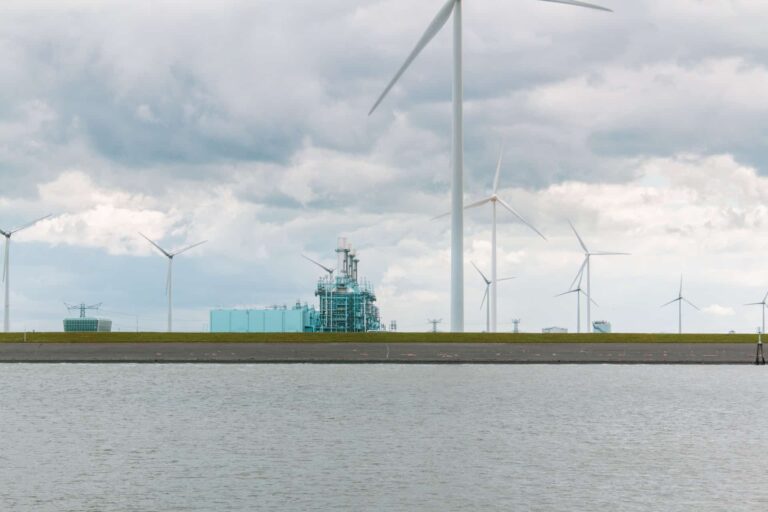Recently, renewable energy sources have received a lot of attention. This is due to their potential to cut greenhouse gas emissions and fight climate change.
Among the various renewable energy options available, biomass energy stands out as a versatile and sustainable solution. In this article, we will explore the concept of biomass energy, its conversion processes, technological advancements, environmental impact, and future prospects.
Table of Contents
What is biomass energy
Renewable energy obtained from organic materials like plants and animal manure is referred to as biomass energy. It is a form of bioenergy that utilizes the stored energy from organic matter, which can be converted into various forms of usable energy, including heat, electricity, and transportation fuels.
The process of harnessing biomass energy involves the combustion or decomposition of biomass materials. Anaerobic digestion can produce biogas or burn it directly to generate heat. Additionally, biomass can be transformed into liquid biofuels, such as ethanol and biodiesel, through biochemical processes like fermentation and transesterification.
Biomass energy is considered renewable. The organic materials used to generate it can be replenished through natural processes, such as plant growth and waste production. It offers several advantages, including reduced greenhouse gas emissions compared to fossil fuels, waste management benefits by utilizing agricultural and forestry residues, and potential economic opportunities in rural areas.
The process of conversion
There are several processes involved in converting it into energy, each with its unique advantages and applications.
1. Direct combustion (burning) to produce heat
Direct combustion is the most straightforward method of utilizing it for energy. It involves the burning in boilers or furnaces to produce heat, which can be used for space heating, water heating, or industrial processes. In residential heating systems and some power plants, people commonly employ this process.
2. Thermochemical conversion to produce solid, gaseous, and liquid fuels
Thermochemical conversion involves the application of heat to biomass in the absence of oxygen, leading to the production of solid, gaseous, or liquid fuels. Gasification is a thermochemical process. It converts biomass into a combustible gas called syngas. Syngas can be used for electricity generation or as a feedstock for chemical production. Pyrolysis is another thermochemical process that produces biochar, bio-oil, and syngas by heating biomass in the absence of oxygen. You can further process these products for various energy applications.
3. Chemical conversion to produce liquid fuels
Chemical conversion involves the use of catalysts and chemicals to convert biomass into liquid fuels, such as ethanol and biodiesel. The process known as bio-refining has the potential to replace conventional fossil fuels in transportation.
4. Biological conversion to produce liquid and gaseous fuels
Biological conversion utilizes microorganisms, such as bacteria and algae, to break down biomass and produce biofuels, such as biogas and bioethanol. Anaerobic digestion is a biological process that decomposes organic materials in the absence of oxygen, resulting in the production of biogas, primarily composed of methane. You can use this biogas for electricity generation or as a renewable natural gas for heating and transportation.
The conversion technologies
Various conversion technologies have been developed to harness the potential of biomass energy effectively. These technologies include:
- Combustion: Involves the burning of biomass to produce heat and electricity;
- Gasification: It converts biomass into a syngas that people can use for electricity and heat generation, or as a feedstock for chemical production;
- Pyrolysis: Breaks down biomass at high temperatures in the absence of oxygen, producing biochar, bio-oil, and syngas;
- Anaerobic digestion: produces biogas by using microorganisms to break down biomass in an oxygen-free atmosphere.
Read also: Agroecology for a resilient planet: what is it and how it works
Environmental impact of biomass energy
Biomass energy has several environmental benefits compared to fossil fuels. Firstly, the growth of new feedstock absorbs carbon, thus reducing greenhouse gas emissions, as it offsets the carbon released during biomass combustion. Secondly, it contributes to the utilization of organic waste materials, reducing the need for landfilling and associated methane emissions.
However, the environmental impact of this kind energy is not without concerns. The combustion can release pollutants, such as particulate matter and nitrogen oxides, which can have adverse effects on air quality. Furthermore, the cultivation of energy crops for biomass production may have implications for land use and water resources, necessitating sustainable practices and proper management.
Future prospects
With continued technological breakthroughs and an increased emphasis on sustainable energy sources, the future of this kind of energy appears bright. Researchers and engineers are continually working to improve the efficiency of conversion processes and reduce costs associated with its production.
Combining biomass energy with wind and solar power can produce a more consistent and dependable energy supply. Moreover, the development of advanced biofuels, such as cellulosic ethanol and algae-based biodiesel, holds great potential for replacing fossil fuels in transportation.
Read also: Exploring the 7 largest solar fields worldwide: what is their contribute to green energy production












